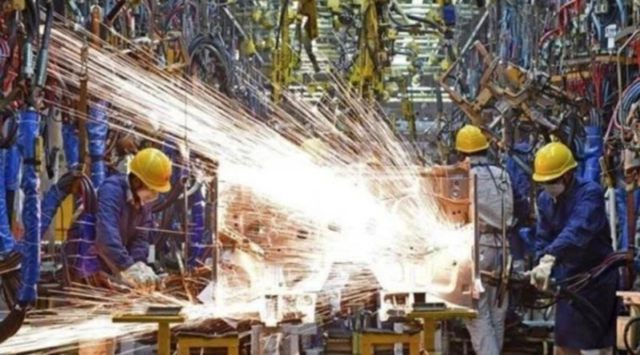The three federations that have created an united front against the central government’s decision are — All India Defence Employees’ Federation (AIDEF) of Left unions; Bhartiya Pratiraksha Mazdoor Sangh (BPMS), an arm of RSS-affiliate Bharatiya Mazdoor Sangh; and Indian National Defence Workers’ Federation (INDWF) of the Indian National Trade Union Congress.

BPMS General Secretary Mukesh Singh said, “BPMS strongly condemns this draconian decision of the government and is determined to fight it tooth and nail. On Tuesday, the conciliation mechanism with the Chief Labour Commissioner came to an end abruptly due to the adamant stand taken by government representatives. We are in consultation with the other two recognised federations of employees.”
Story continues below this ad
C Srikumar and R Srinivasan, general secretaries of AIDEF and INDWF respectively, said all three federations will launch a joint agitation against the government move.
In April, the three federations had complained to the Chief Labour Commissioner of India, stating that their employer, the Department of Defence Production (DDP) under the Defence Ministry, was “blatantly violating” the conciliation settlement reached between them in October last year when the federations had deferred the strike they had called against corporatisation of the OFB.
The federations had said in their complaint, “While the federations and the trade unions at the unit level are fully implementing the conciliation settlement, the DDP has started violating the settlement by issuing a letter allowing the consultancy firms to proceed with its work.”
In spite of the strong opposition from the three main worker federations, the Ministry of Defence had been taking concrete steps towards converting the OFB into 100 per cent government-owned corporate entities.
Story continues below this ad
The OFB, an umbrella body for ordnance factories and related institutions, is currently a subordinate office of the MoD. The organisation dates back over 200 years and is headquartered in Kolkata. It is a conglomerate of 41 factories, nine training institutes, three regional marketing centres and five regional controllers of safety.
A major chunk of the weapon, ammunition and supplies for not just armed forces but also paramilitary and police forces come from OFB-run factories currently. Their products include civilian and military grade arms and ammunition, explosives, propellants and chemicals for missiles systems, military vehicles, armoured vehicles, optical devices, parachutes, support equipment, troop clothing and general store items.
While at least three committees on defence reforms set up by the governments between 2000 and 2015 have recommended the corporatisation, it had not been implemented till now. The notion of corporatisation was listed as one of the 167 ‘transformative ideas’ to be implemented in the first 100 days of the Narendra Modi government’s second term.
One of the main apprehensions of the employees is that corporatisation would ‘eventually lead to privatisation.’ Another key concern is that corporate entities would not be able to survive the unique market environment of defence products that has a very unstable demand and supply dynamics. The workers also fear job losses.









